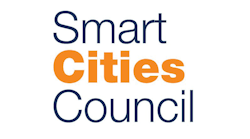Smart Cities Council Announces Finalists for 2018 Readiness Challenge Grants
Smart Cities Council has announced the finalists for its 2018 Readiness Challenge Grants, of which five will be selected in early March to receive mentoring as well as tailored products and services to accelerate their smart city initiatives. Additionally, Puerto Rico will be awarded a special Readiness Challenge Grant to help accelerate its hurricane recovery efforts.
Special Humanitarian Grant for Puerto Rico
“We expanded our program to offer early support to Puerto Rico based on their urgent need to rebuild,” explained Smart Cities Council Chairman Jesse Berst. “We were very impressed with their application, which focused on ‘building back better’ after last year’s devastating hurricane.”
Puerto Rico is launching an integrated planning effort to align goals and interests, and to ensure that replacement infrastructure is smart from the start. It wants a centralized program for sustainable development to elevate its economic, social, and environmental outcomes. This kind of holistic, cross-cutting approach is at the heart of the Council’s Readiness Program, a smart city methodology that has been developed over the past six years and delivered to dozens of cities around the world. The Council will help Puerto Rico develop a Readiness Roadmap, starting with a Readiness Workshop in San Juan in March.
"This grant is an invaluable opportunity for Puerto Rico to develop a roadmap for implementing smart technologies and solutions as we rebuild," said Puerto Rico Governor Ricardo Rosselló. "These efforts, which are being carried out in collaboration with the Office of the Government of Puerto Rico in Washington, D.C., will create an innovative pathway for a better Puerto Rico."
Readiness Challenge Grant Finalists
The following cities, counties and states are finalists for the five winning slots:
- Albuquerque, New Mexico: Albuquerque is on its way to becoming a cutting-edge digital city, with the goal of creating a single, one-stop portal for electronic payments and business interactions. The city is also determined to reduce crime by supplying police with the latest crime-fighting technology.
- Aurora, Illinois: Aurora already has numerous digital tools for citizen engagement. Now it hopes to construct an Open Data portal to further its goal of an efficient, transparent government that uses data-driven decision making.
- Birmingham, Alabama: Birmingham is focused on social equity, economic competitiveness, and environmental sustainability. The city is implementing a project database and other ways to help the city's departments find synergies – ways to share infrastructure, share costs, and share data.
- Cary, North Carolina: This town of about 170,000 is already underway with its initiatives such as the Garage for Innovation, the Innovation Analytics Lab, the Simulated Smart City Project and the One Cary platform. That platform will share data between departments, provide better insights, and give citizens digital access to services and information.
- Fairfax County, Virginia: Fairfax County is diligently working on a countywide smart city strategy to "transcend silos and connect our strategic initiatives." The county has already established several transformative programs – creating cross-departmental teams to achieve goals and uniting the public, private, philanthropic and academic sectors. The goal of its e-Gov initiative is to have a “government without walls, doors, or clocks.”
- Los Angeles, California: Los Angeles is developing a cross-departmental Citywide Technology Plan to drive smart city innovations throughout the city. For instance, many of its resources are built to be accessible to all departments and, in some cases, to all citizens. The city's commitment to smart technologies is illustrated by the Mayor's $1 million Innovation Fund, which provides financial support to ideas proposed by city employees.
- Las Vegas, Nevada: Las Vegas is committed to being a model smart city and is developing detailed plans to build a core platform, to attract capital and talent, and to implement projects that solve social and environmental problems. In particular, the city is working on a municipal fiber network as well as an Innovation Lab to support technology pioneers.
- Louisville-Jefferson County, Kentucky: Louisville Metro has been on the "smart" path for many years. For instance, it was one of the first cities to appoint a Chief Innovation Officer. Since 2011, its LouiStat program has worked to bring data-driven decision making to the entire county. And it is working diligently to connect more homes and businesses with ultra-high-speed Internet.
- Virginia: This forward-thinking state has formed a smart cities working group to equip Virginia’s communities with the resources, support, and tools to become smart and sustainable. One initiative seeks to combine federal, state, city and private data into a single analytic framework – an open innovation platform that all cities can access, with the state providing technical support, best practices and easy onboarding.
“We are thrilled to see such a diverse set of candidates committed to making their communities more livable, workable and sustainable,” said Smart Cities Council Chairman Jesse Berst. “They have already made substantial progress in developing their visions, and we are excited about working hands-on with them to bring those visions to life.”
The five winning jurisdictions will receive a full year of expert, vendor-neutral mentoring, plus an on-site Readiness Workshop custom-tailored to each community’s needs and priorities. They will also receive free products and services worth hundreds of thousands from leading organizations and Smart Cities Council partners, including Qualcomm, Battelle, SYNEXXUS, CompTIA and IES.
The 2017 grant program helped Austin, Indianapolis, Miami, Newport News, Orlando and Philadelphia craft action plans to further innovation, inclusion and investment within their cities. Among other things, the inaugural winners used their assistance to improve transportation, develop smart growth plans and reduce racial inequality.


